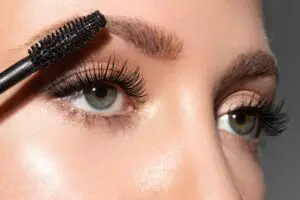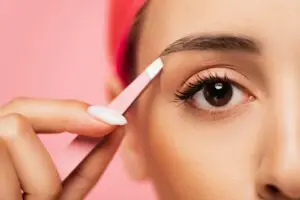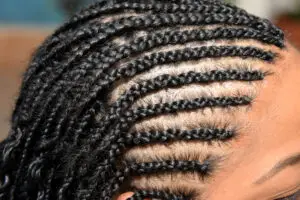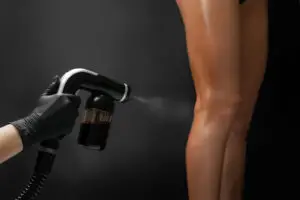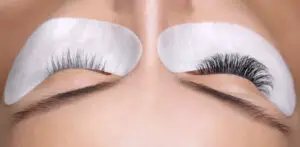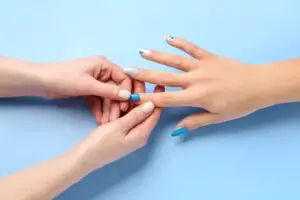Grey hair can be a concern for many people as it signifies ageing and a loss of the hair’s youthful appearance. You may have heard about using baking soda as a solution for dealing with grey hair. It is essential to understand the potential effects of baking soda on grey hair before incorporating it into your hair care regime.
Baking soda has myriad household uses and has recently found a place in some beauty routines. However, caution is advised while using it for hair care as it may have undesirable effects on your hair. Its benefits for grey hair are debatable, but some individuals use it as a natural alternative to hair dyes and other hair products.
Understanding how baking soda interacts with your hair is crucial before deciding on its application. This is especially true with grey hair, as it differs in texture and composition from pigmented hair. Being well-informed about the effects of baking soda allows you to make an informed decision about whether or not it is suitable for your specific situation.
What Is Baking Soda
Baking soda, also known as sodium bicarbonate, is a white crystalline powder commonly used as a leavening agent in baking, a cleaning agent, and even for personal care. It is a natural substance that has a wide range of uses due to its alkaline properties which help neutralise acidic substances, allowing for various chemical reactions to take place.
In personal care, baking soda is often praised for its versatility. It is gentle enough to be used as a toothpaste substitute, providing abrasive properties to remove plaque and stains from teeth.
Additionally, some people find it helpful in treating heartburn, as it works as an antacid to neutralise stomach acid in mild cases.
As for hair care, baking soda is sometimes used as a natural alternative to cleanse and clarify the scalp. By helping to remove product build-up, it can leave your hair feeling clean and refreshed.
However, it is important to note that using baking soda on hair should be done with caution and in moderation, as it can potentially cause damage, especially to those with grey hair.
Effects of Baking Soda on Grey Hair
Neutralising Unwanted Tones
Baking soda can be used to neutralise unwanted tones in grey hair. Its properties can help to counteract any brassy or yellow tones that might be present in the hair. By using a mixture of baking soda and water, the natural pH balance of your hair can be restored, contributing to a more even colour throughout your grey hair.
Non-Chemical Hair Lightening
Another effect of baking soda on grey hair is its ability to restore brightness without relying on harsh chemicals found in commercial hair lightening products.
While the results may not be as dramatic as using chemical-based products, this natural alternative can help to rejuvenate your grey hair, giving it a healthier appearance and a more vibrant colour.
Effects on Hair Shaft
However, it’s important to note that using baking soda on your hair might not be entirely beneficial. Some people have reported dryness and damage to their hair after using baking soda repeatedly. This is because baking soda can strip the hair of natural oils, which are essential for maintaining the integrity of the hair shaft.
In order to minimise the risk of damage, it is recommended to use baking soda sparingly and always follow up with a conditioning treatment.
How to Use Baking Soda for Grey Hair
Baking Soda Hair Treatment
One effective method to help revitalise grey hair involves using a mixture of baking soda and aloe vera gel. Baking soda helps to balance the pH of the hair, while aloe vera gel provides much-needed moisture. To create this treatment, follow the steps below:
- Combine 2 teaspoons of aloe vera gel, 1 teaspoon of hair oil, and a sufficient amount of water in a bowl to create a thin, manageable consistency. Aloe vera gel should not be too thick.
- Apply the mixture to your hair and scalp, ensuring even coverage.
- Leave it on for 10-15 minutes, allowing the baking soda and aloe vera to work their magic.
- Rinse thoroughly with warm water, and then follow up with a deep conditioning treatment to lock in moisture.
Another option is to use a baking soda and apple cider vinegar treatment to enhance the vibrancy of your hair colour and restore its natural pH balance:
- Combine 2 tablespoons of apple cider vinegar with 2 teaspoons of baking soda.
- Apply the mixture to your hair, focusing on the grey areas.
- Allow the solution to sit for 15 minutes, and then rinse with warm water.
Precautions and Considerations
While these treatments can provide benefits, there are a few precautions and considerations to keep in mind:
- Baking soda can be drying, so it is crucial to follow up with a conditioning treatment for best results.
- Those with very dry hair should consider adding a hair oil to the mix to help counteract the drying effects.
- It is best to use these treatments weekly or monthly, depending on your hair’s texture and individual needs.
- Baking soda treatments may not work well with essential oils and certain other hair care ingredients. Make sure to test a small, inconspicuous area before applying the treatment to your entire head.
Overall, carefully following the recommended steps and precautions can help you achieve positive results using baking soda for revitalising your grey hair.
Benefits and Drawbacks
Pros of Using Baking Soda
Baking soda and vinegar can enhance the vibrancy of your grey hair, adding luster and life to dull strands. Specifically, baking soda possesses mild abrasive properties that help remove product buildup and restore natural shine to grey hair.
By cleansing your hair and removing excess oil, baking soda may also contribute to softer hair and improved hair texture.
Cons of Using Baking Soda
While baking soda is effective in cleaning your hair, one drawback is that it can strip the hair of its natural oils, leading to dryness. This can be especially problematic, as grey hair doesn’t retain water as easily as hair with its natural colour.
In some cases, the use of baking soda on hair has resulted in severe damage, potentially due to the product’s alkaline nature. It is important to be cautious and test a small area of your hair before using baking soda extensively.
Alternative Solutions
Grey hair can be a natural part of the ageing process, but some people might prefer to try alternative methods to manage it.
Hair Toners
Hair toners can be a great option for neutralising unwanted grey hair tones. They work by adding pigments to the hair, which can enhance the colour and help to blend grey hair more effectively. You can choose from various toners available in the market that cater to different hair types and desired results.
It’s essential to consult your hairstylist for the best product and application method for your specific hair needs.
Purple Shampoos
Purple shampoos can also help manage grey hair by counteracting yellow tones that can develop in grey or lightened hair. These shampoos contain a purple pigment that counterbalances brassy tones, ensuring your hair stays vibrant and healthy-looking.
To use purple shampoo, simply apply it like regular shampoo and leave it in for a few minutes before rinsing it out. Be sure to follow the instructions on the product as leaving it in for too long may result in a purple tint to your hair.
Conditioners
In addition to purple shampoos, you can also use purple conditioners to keep your grey hair looking fresh and radiant. These products contain similar pigments to purple shampoos, but in a nourishing and hydrating conditioner formula. This can help prevent dryness and breakage, which can be prevalent in grey hair. By using a purple conditioner, you can maintain your hair’s health and appearance while combating any unwanted yellow tones.
In summary, there are various alternative solutions to manage grey hair, such as hair toners, purple shampoos, and conditioners. It’s essential to find the best product and method tailored to your hair type and needs, ensuring the best possible results.
Conclusion
Using baking soda and vinegar for gray hair may provide some temporary brightening effects, but it’s essential to be aware of its potential drawbacks. It’s important to recognise that this method alone is unlikely to address the root cause of the issue and could potentially cause damage.
Baking soda is known to be an effective cleansing agent; it helps remove excess oil and sebum in the scalp. Some people report that baking soda, dissolved in water, can remove excess oil and buildup, soften hair, and restore shine. However, it may also strip the hair of natural oils, which can lead to dryness and possible damage.
On the other hand, incorporating aloe vera gel and hair oil into your hair care routine could yield improvements in your hair’s health. A suggested mixture involves combining 2 teaspoons of aloe vera gel, 1 teaspoon of hair oil, and enough water to ensure the mixture isn’t too thick. The hair oil can be especially beneficial for those with very dry hair.
In summary, while baking soda and vinegar might offer some temporary benefits for grey hair, they are not a long-term solution. It’s crucial to consider potential side effects and explore alternative methods for maintaining healthy hair. Utilising natural ingredients like aloe vera gel and hair oil in your routine could be a viable option.

I’m Jennifer a beauty and wellness expert. I believe in promoting a sustainable and healthy lifestyle from within. Helping people feel good is my passion; whether it’s teaching yoga or offering skincare advice.


